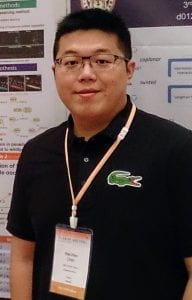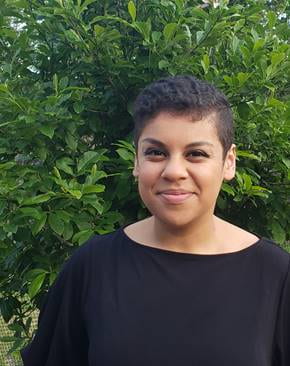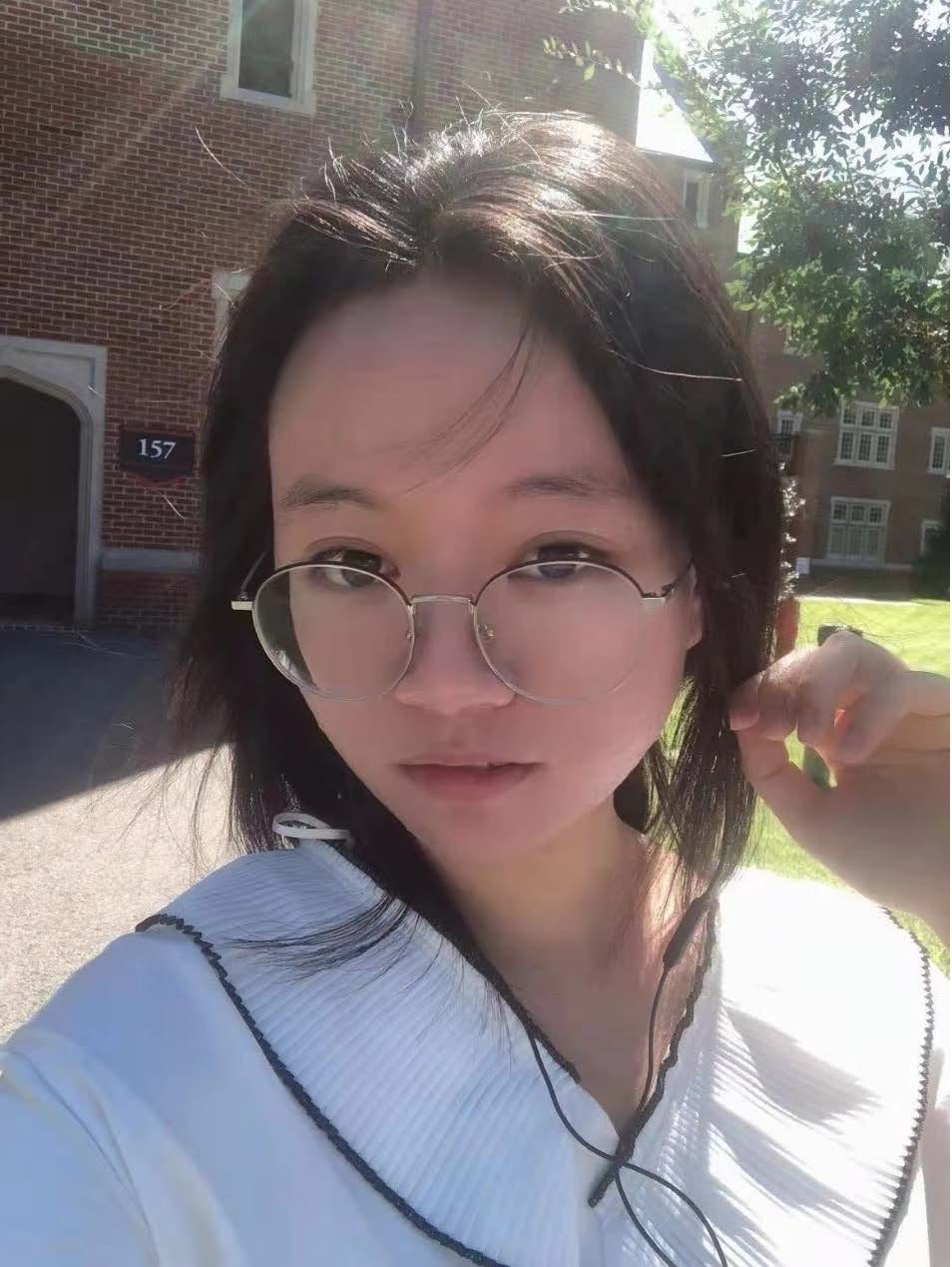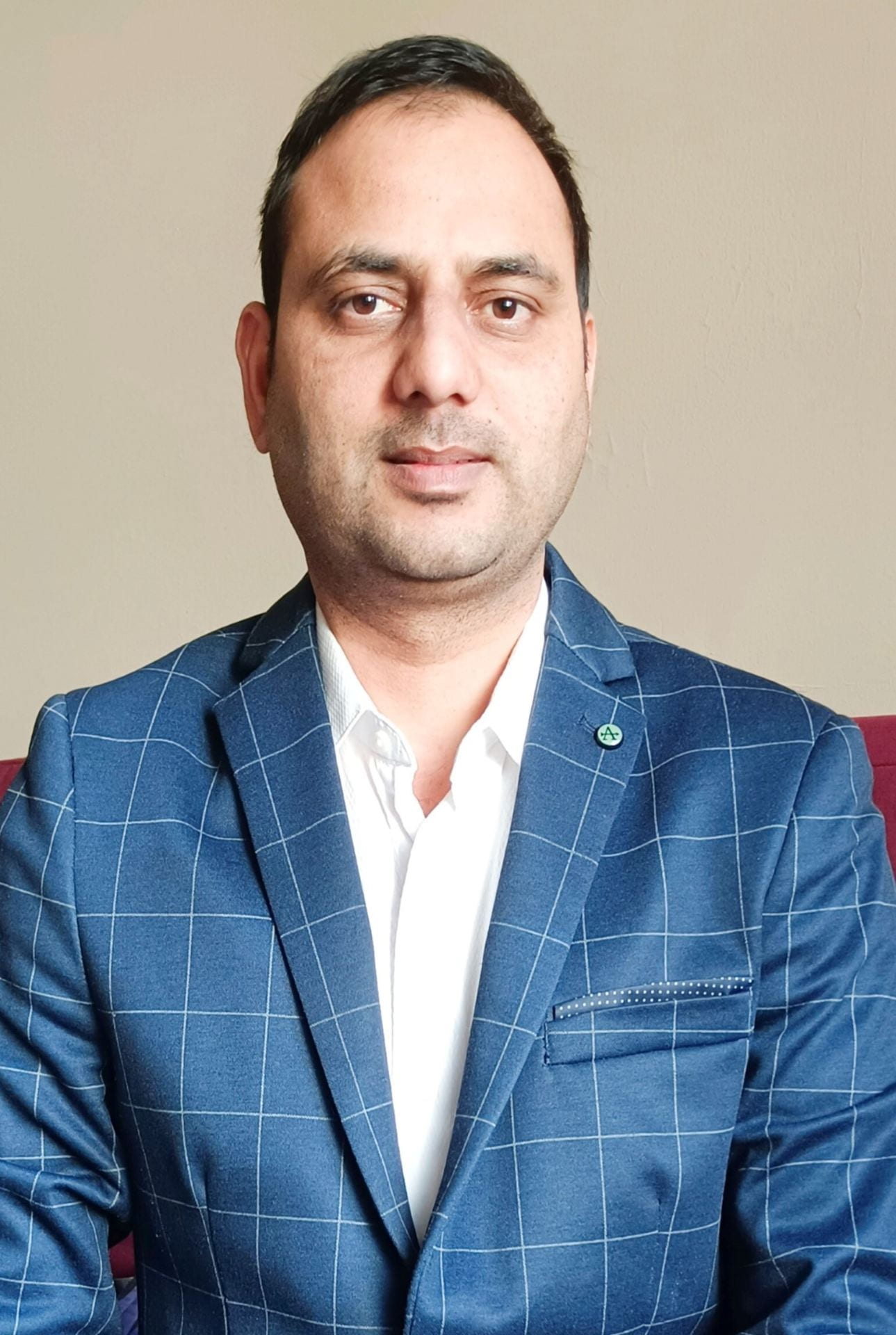I am a PhD student in chemical engineering. I am from Mobile, AL and obtained by B.S. in chemical engineering there at the University of South Alabama. While there, I worked on the thermodynamic characterization ionic liquid systems for the purpose of high-temperature heat transfer fluids. At Tech, I would like to take my chemical engineering background and use it to work on the development of lab instrumentation to investigate protein stability. I am co-advised with Dr. Andreas Bommarius.
I am a third-year chemistry undergraduate student with interests in quantum chemistry and spectroscopy. I currently attend Georgia Tech, where I am a member of the Georgia Tech Marching and Pep Bands. This is my first year working in the Cicerone Lab, where I am working towards refining the signal processing procedure to recover relevant spectral information from the raw BCARS signal. In my free time, I enjoy cooking, playing games, and consuming just about every piece of fantasy media I can get my hands on.”

Wei-Wen Chen
I received my PhD degree in Physical Chemistry from National Tsing Hua University, Taiwan (TIGP program). After graduation, I joined Biosystems and Biomaterials Division at National Institute of Standards and Technology (NIST) as a guest researcher under the supervision of Prof. Marcus Cicerone, where I worked for a year before moving to Georgia Tech. My research interests are focused on developing advanced label-free imaging and analysis approaches to study new biological questions that are difficult to solve using traditional methods, such as lipid metabolism in live biological systems that include cells and small model animals.
I’m a 2nd year Chemistry PhD student. I’m passionate about making a difference and hope that whatever I do in my career that I will help reduce climate change. My research in the Cicerone and Cheung labs focus on studying nitrogen fixation metabolism and symbiosis in plant roots using Raman spectroscopy. During my time as an undergrad at University of Minnesota, I studied Chemistry and Plant Science with an emphasis on Plant Biochemistry. I presented my undergraduate research on Grape Color Metabolomics as a poster at ASMS 2019. After graduation I worked in the Research and Innovation Lab at Danone North America assisting in food science research on Plant Based Yogurt. Another large part of my life is recreation. I love running, climbing, caving, backpacking, hiking, biking, and skiing.
I am a Master’s student in Biochemistry. I received my Bachelor’s degree in Biochemistry from Georgia Tech and am continuing through my Master’s degree as part of the BS/MS program. I have previously studied protein isolation for characterization of various viral proteins as well as natural product chemistry techniques in which my focus was isolation of small molecules displaying antibiotic properties. Currently in the Cicerone lab, my work focuses on the co-delivery of anti-cancer drugs with mRNA through nanoparticle encapsulation. Outside of chemistry, I love baking, hiking, and yoga.
I am a PhD student in Bioengineering with a home school in Chemical and Biomolecular Engineering. I received my BS/MS in Physics with a minor in Biology from the Indian Institute of Science. For my Master’s, I worked on a frugal ultrafast photonic PCR device. For my Bachelor’s, I worked on cost-effective instrumentation for Diffuse Optical Tomography. At Prof. Cicerone’s lab, I am working on using Raman spectroscopy to examine non-equilibrium statistical mechanical models that aim to predict the behavior of living (cellular) systems. I am also developing frugal Raman spectroscopy techniques to perform biofluid-based medical diagnostics using minimal reagents. I am co-advised by Prof. Saad Bhamla in the Chemical and Biomolecular Engineering department.

Ronit Sharon-Frilling
My scientific interests lie in determining the relationship between cell structure and function that defines the cell’s fate. This relationship encompasses the phenotypic and functional characterization of fundamental processes like metastasis, differentiation and host-pathogen interaction. In my prior work with Professor Tom Shenk at Princeton University’s Molecular Biology Department, I studied the virus-host cell interaction of Human Cytomegalovirus in fibroblasts from two related perspectives: (i) Functional Profile- a study of the function of the viral UL37 gene protein on the cell host by production of a mutant, lacking most of the UL37x1 coding region (Sharon-Friling et al., 2006), and (ii) Morphological Profile: a study of how the interaction between the membrane’s constituents, recruited to the cell membrane during infection, are translated into their cell 3D structure (Sharon-Friling R., Shenk T. (2014).
I will never forget my enthusiasm when I was introduced to the capability of the broadband coherent anti-Stokes Raman scattering (BCARS) microscopy, created by Prof. Marc Cicerone, for studying how lipids and lipid-binding proteins mediate cellular membrane structure and function. Studies using this microscopy reveal that the specific lipids and lipid-associated proteins recruited to the plasma membrane during infection regulate the formation of a microdomain on the cell membrane (lipid raft, caveolin1-microdomain), thus facilitating the biogenesis of tubule/vesicle systems (vTVS) essential for viral morphogenesis (Sharon-Friling et al., 2019, Manuscript in preparation).
Taking advantage of this method moves us a step forward towards our ultimate goal of predicting the cell’s functional fate through its chemical signature. Non-invasive and label free BCARS technology will contribute to the cell therapy and regenerative medicine research. Furthermore, using the unique capability of BCARS in detecting the identity of lipids in living cells (e.g. cholesterol and sphingolipids) by monitoring their spatial localization, will give us insight into the regulatory role of membrane lipid composition and how it is correlated with a distinct assigned functional role for the cell.
I’m currently a Ph.D. student in the Chemistry Department. I received a B.S. degree in Biochemistry and Molecular Biology from the University of Richmond. I have had four years of physical chemistry research experience under Professor Samuel Abrash. I studied the bonding geometry and thermodynamic properties of nascent forms of ultrafine particulate matter using a new genetic algorithm. Expanding on my previous research experience, in my graduate study, I would like to utilize interdisciplinary concepts and learn advanced techniques to explore dynamic biological systems. In my leisure time, I love reading, board games and Pilates.
I am a first-year PhD student in the School of Chemistry and Biochemistry at Georgia Tech. I am originally from Richland, Washington, having graduated from Washington State University with a B.S in Biochemistry in 2023. While in Richland, I briefly worked in the Integrative Omics group at Pacific Northwest National Laboratory (PNNL) before accepting a position with the Counter-Weapons of Mass Destruction Branch at the Georgia Tech Research Institute (GTRI) in Atlanta, Georgia. At GTRI, I have worked on a wide variety of projects, ranging from rapid detection of sepsis using interferometric techniques to the sourcing and attribution of trace chemical components in hazardous materials using optical, elemental, and mass spectroscopic instrumentation. Through my graduate education, I would like to help develop and refine the rapid, label-free Raman spectroscopic imaging and analysis approach leveraged by the Cicerone group to start answering questions pertaining to fundamental cellular processes that can be used for the better understanding of and diagnosis of disease.
I am a PhD student studying Biomedical Engineering. I am from Beijing, China and obtained my B.S. in Biomedical Engineering at Peking University where I researched the development of lens-free microscopy using digital holographic formation and reconstruction. I also spent a summer at Tech studying Fourier optics and helped with the development of a wave propagation simulation software. I am now interested in and focused on developing instrumentation and applying problem-solving techniques of engineering to biology and medicine.
sunil.yadava@chemistry.gatech.edu
I am a multidisciplinary background researcher, with an undergraduate degree in Pharmacy, a Masters degree in Pharmaceutical Technology and a Doctorate in Biomedical Engineering from The Indian Institute of Technology, Hyderabad India. I joined the Cicerone lab as a postdoctoral researcher just after completing my doctorate. My research interest focuses on drug, gene and, vaccine delivery, genetic engineering related to cancer immunotherapy, and development of next- generation nanoplatforms for biomedical applications such as diagnosis and treatment of cancers. Currently, I am working to stabilize conventional and modern vaccines under ambient conditions and the delivery of them through microneedle patches to solve one of the major hurdles associate with vaccines (i.e. instability at room temperature). To stabilize the conventional vaccines, we are developing sugar glass and protein-sugar glass. However, to stabilize the modern vaccines (mRNA or DNA vaccines), we are developing smart nanocapsules for delivery followed by stabilization in glass.









